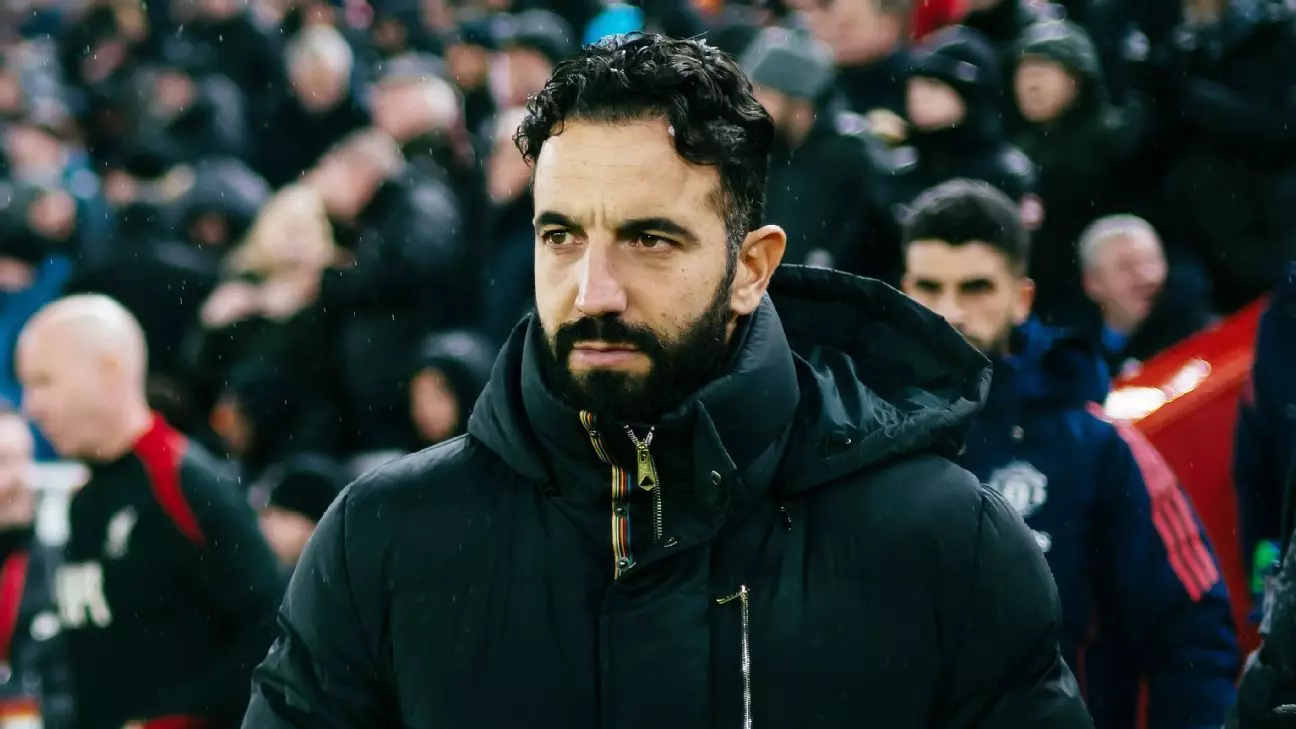Ruben Amorim’s departure from Sporting CP to Manchester United marked a significant transition, one that many followed with great anticipation and scrutiny. Appointed in November after the sacking of Erik ten Hag, Amorim’s arrival came at a tumultuous time when Manchester United was languishing in 14th place in the Premier League. The pressure to reverse the club’s fortunes was immense, and expectations weighed heavily on the young manager. With a notable record at Sporting, where he secured two league titles in four years, Amorim seemed poised for success. However, the reality of managing a storied club like United proved to be exceptionally daunting.
Amorim’s initial tenure at United was characterized by an unsettling start, featuring six defeats in his first 11 league matches. This poor beginning was historically significant; it represented the worst opening for a manager at Old Trafford since 1932. The weight of such a statistic is not merely a number; it encapsulates the sense of crisis surrounding the club. When asked whether these early months were the most stressful of his career, Amorim candidly admitted they were both intense and special—a duality reflecting the high stakes in play. His acknowledgment of the challenges ahead indicated a shrewd understanding of the situation: he was not just stepping into a role, but into a swirling tempest that required both resilience and astuteness to navigate.
After a particularly disappointing 3-1 loss to Brighton & Hove Albion, Amorim’s frustration boiled over, leading him to label his squad as potentially the “worst in the history of Manchester United.” Such remarks, while perhaps revealing his frustration, also risked demoralizing a struggling team. It was an admission that could haunt a manager, as public declarations often do. However, with evidence of a slight resurgence following this outburst—two consecutive victories—Amorim’s comments illustrate a volatile balance between pressure, honesty, and tactical awareness. Notably, he later walked back that statement, focusing on the need for improvement rather than wallowing in past failures.
What truly distinguishes Amorim is his belief in accountability and performance standards. His relationship with star forward Marcus Rashford became a focal point when he decided to omit the player from the squad for an 11th successive match, stating he would prefer using a goalkeeper coach over a player not giving his best. This not-so-subtle critique emphasizes a pivotal aspect of Amorim’s management philosophy: high standards must be maintained if the club harbors ambitions of victory. His insistence on demanding excellence from every player outlines a principled stance—one that suggests no player, regardless of stature, is above the organization’s needs.
Amorim’s commentary on players like Casemiro further reflects his strategic outlook. Despite the veteran’s decorated history at Real Madrid, Amorim articulated the necessity for high-intensity players in the current league context. His recognition that Casemiro now offers a different type of influence, focusing on intelligence over physicality, shows a tactical adjustment that could be key to building a successful team. Amorim’s decisions speak to a larger understanding of the evolving nature of football—where understanding the game’s pace and demands is as crucial as individual talent.
As Ruben Amorim grapples with the realities of his role, Manchester United’s future under his stewardship remains uncertain yet filled with potential. Despite early setbacks, the manager’s reflections unveil a mindset that embraces both the challenges and the exhilarating highs of a club steeped in history. As he reorients the team around accountability and effort, the task of revitalizing Manchester United becomes not just a goal, but a journey into uncharted waters. While the immediate pressure looms large, Amorim’s resilience and willingness to alter his tactical approach will be crucial assets in defining his legacy at one of football’s most iconic institutions.

